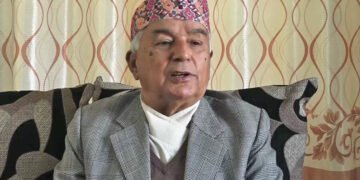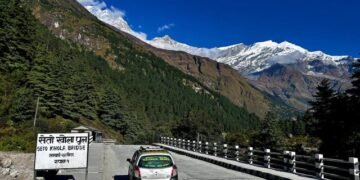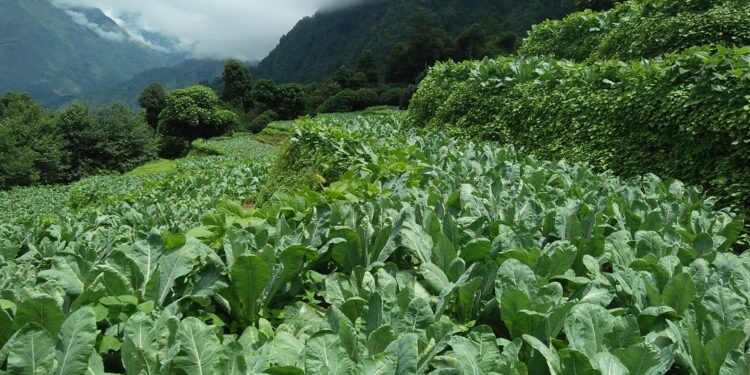Kanchanpur, Jan 2: A freed Kamaiya (bonded labourer), Mahadev Chaudhary of Shuklaphanta Municipality-8 in Kanchanpur has been earning a good income by cultivating commercial vegetable farming. Chaudhary, who is living at Naukhari Muktakamaiya Camp, has been engaged in the farming since a decade ago.
He grows vegetables on 10 katthas of land (he owns five katthas of land, and leases additional five katthas by paying Rs 10,000 a year).
He only cultivates vegetables throughout 12 months on 10 katthas of land. He has earned from Rs 700,000 to Rs 1 million per year by selling vegetables.
“From this business, I get around Rs 700,000 saved every year cutting expenses,” he shares.
He has built a concrete house in the village with the money he earned from vegetable farming. Similarly, he has sent his son to a foreign country for a job.
“I have bought an auto rickshaw to take vegetables to the market and transport passengers as well. I am supporting for my eight-member family with the incomes from the farming,” he says.
Off-season vegetables are grown inside the plastic tunnel so as to save them from cold, wind, sun, rain, etc. Other seasonal vegetables are produced outside the plastic tunnel. Cauliflower, cabbage, tomato, chili and green vegetables are now planted in Chaudhary’s field. This season so far, he has sold cauliflower and tomato worth more than Rs 60,000, he says.
Before cultivating vegetables, Mahadev used to earn his living as a daily wager. The vegetable farming has changed his lifestyle, he says. “It was difficult to pay for household expenses as a daily wager. I had to suffer from debt taken from moneylenders. I used to be in problem on paying the debt and support the family. Now, after growing vegetables, I have no debt, and the family’s expenses are running smoothly.”
Like Mahadev, 27 families in the Muktakamaiya settlement are now engaged in commercial vegetable farming. Misalu Chaudhary, a local, says since he has got the steady income from vegetable farming, he has continued the business.
“We have planted cauliflower, cabbage and potato on five katthas of land using cow dung. The products are being sold directly. As the vegetables are produced through an organic method, they are fetching more price than the market price,” he says.
His annual income from the sale of vegetables is Rs 200,000. Most of them had to work as daily wagers without any other options after the government freed them as bonded labourers.
Now most of them have started switching to the vegetable farming, says local Bhagiram Chaudhary.
“Some are involved in commercial vegetable farming while some work as carpenters, plumbers and electricians.” A non-governmental organisation, Muktakamaiya Mahila Bikas Manch, has landed a helping hand for the freed bonded labourers.
The platform has trained the freed bonded labourers on commercial farming and making plastic tunnels, and provided seeds and bicycles to take the vegetables to the market. Similarly, it has trained them on chicken and pig farming, and on driving and the construction of cages to raise livestock and chicken.
Twelve farmers were provided with greenhouses for commercial vegetable farming, 50 people were given the support in home gardening, and eight people were given bicycles for establishing business, says Indra Chaudhary, the NGO’s programme coordinator.
According to the NGO, over Rs 2.5 million has been invested to make the freed bonded labourers an entrepreneur. For this venture, the municipality has been providing technical support along with chemical fertilizers and seeds.
“The number of commercial farmers has increased after the launch of the subsidy programme targeting the freed bonded labourers,” said Karan Singh Budhaer, chief of the agriculture section at the municipality. “The economic condition of the freed bonded labourers has improved compared to the past as they are becoming self-employed.”





















